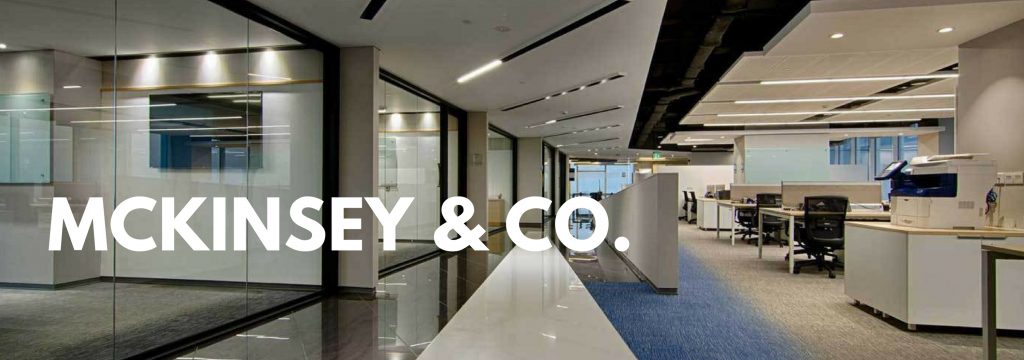Jeff Sessions Learns Lessons from Notre Dame, and More – Chicago News

Let’s explore some of the most interesting stories that have emerged from Chicago business schools this week.
Stop Flailing and Start Delivering – Kellogg Insights
Of the “five common issues that impede career progress” Northwestern Kellogg clinical professor of innovation and entrepreneurship Carter Cast writes about in his new book, The Right (and Wrong) Stuff: How Brilliant Careers Are Made—and Unmade, the one issue that people most frequently self-identify is struggling to keep up.
Cast writes, “Careers can derail when people don’t deliver on promises. This can be a real problem because fellow workers start to distance themselves when they think you can’t be counted on.”
Cast offers five suggestions for how to “get organized and get ahead.”
1) Be Clear on What’s Expected of You
“Being clear with your boss on what success looks like is really important for setting expectations and ensuring you’re aligned. What are your goals and objectives for the year? What are the key initiatives that map to those objectives? What are the timelines for those initiatives, and what sort of resources will you need?”
2) Understand Your Organization’s Workflow Process
Cast says creative types tend to “overpromise and underdeliver” because “their eyes are typically bigger than their stomachs.” To these folks, Cast says, “Decide which tasks will really move the needle for your organization, and focus on those first. You can’t treat every message in your inbox equally.”
3) Be Intentional about Prioritizing Your Work
Cast suggests “breaking your day into segments and tackling challenging work during times when you are sharpest and most productive.” For instance, if your brain is most active between six and ten in the morning, for instance, that may not be the best time to respond to noncritical emails.”
YOU MAY ALSO LIKE: Kellogg Admissions Director Shares Insights on 2019 MBA Application
4) Learn How to Say “No”
Cast writes that people-pleasers “tend to take on more than they should—their default response is, “yes, why not?” But learning when to say “no,” and learning to do it tactfully, is critical for preserving valuable time and energy.”
5) Look for Opportunities to Delegate
Cast says, “We tend to think the best person to perform a given task is ourselves. In many cases, you have to learn to let go a bit. Things won’t go exactly the way you’d like, but you have to move forward and avoid needless distractions.”
You can check out the full article here.
Larry Gies Urges 2018 Graduates to “Find Your Way” – Gies School of Business Blog
Madison Industries founder, president, and CEO Larry Gies used his speech at Gies’ recent Convocation ceremony, which honored the “1,824 bachelor’s, master’s, and doctoral degree recipients,” as an opportunity to inspire graduates to spend time pinpointing their passion for what they do—or their “why.”
Gies, who donated $150 million to the University of Illinois last year, thus, changing the name of the business school in his honor, explains, “Knowing your why is critical. It is the ability to connect the dots between what you’re doing each and every day and a higher purpose. Our why is what drives us, inspires others around us, and allows us to persevere during those difficult moments. To put it simply, when you find your why, you love what you do.”
Gies adds, “I was forty-five before I found my why.”
Find out more about Gies’ speech here.
I’m a Biblical Scholar. It’s Clear That Jeff Sessions Needs a Bible Lesson – Mendoza Ideas & News
Notre Dame Mendoza business ethics professor and former Jesuit priest Joseph Holt contributed an op-ed to a recent issue of Fortune in which he took Attorney General Jeff Sessions to task for his “use of scripture to defend the Trump administration’s immigration policies.”
Professor Holt writes, “Sessions is pursuing justice understood as the strict and impartial application of the law. That shriveled understanding of justice is captured in the statement by Homeland Security Secretary Kirstjen Nielsen: ‘In the United States, if you break the law, you go to jail and you’re separated from your family.’
He adds, “From that viewpoint justice and mercy are opposed, because mercy could impede the administration of strict justice. But tzedek [the Hebrew word for “justice”] and its derivative tzedakah (which is a commandment to give as an act of social justice), mean justice and mercy working in unison.”
You can read the full article here.
Empathy and Power, According to Northwestern Research – Chicago News

Let’s explore some of the most interesting stories that have emerged from Chicago business schools this week.
How Much Empathy Do You Feel When Powerful People Suffer? – Kellogg Insight
Northwestern Kellogg assistant professor of management and organizations Nour Kteily recently co-authored new research with Cornell University assistant professor Brian Lucas that explores how much empathy people experience when the factory floor worker suffers a pay cut compared to when the executive’s six-figure salary gets lobbed off.
Kteily writes, “The prevailing view has been that anti-egalitarians do not have it in them to empathize, and egalitarians are empathetic toward everyone.
Kteily’s research found that “when people read about victims with lower social status, egalitarians consistently expressed more empathy than people with anti-egalitarian views did. But when they read about victims with a higher socioeconomic standing, the opposite occurred. Participants who strongly favored a social hierarchy expressed more concern for victims like the wealthy executive than the egalitarians did.”
You can read the full article here.
Friend or Foe? Notre Dame Conference Explores Ethical Considerations of AI – Mendoza Ideas & News
Notre Dame University’s Mendoza College of Business recently announced “Artificial Intelligence and Business Ethics: Friends or Foes,” a fall 2018 conference sponsored by the Chase Manhattan Lecture Series, that “will explore the ethical issues arising from the use of AI in business and larger culture.”
Associate teaching professor in Mendoza’s IT, Analytics, and Operations Department Timothy Carone, who organized the conference, writes:
“The reason AI is so important is that it can make and implement decisions that heretofore were the purview of humans only. Over time, these decisions set up a pattern and it is this pattern we call ‘ethical behavior.’ We have only begun to explore the ethical implications to businesses of using AI to replace human decision-making and understand how to manage the new risks that come with this transformation.”
Featured speakers include:
- Daniel Fagella, the founder of daily newsletter TechEmergence, which serves as an industry source for business applications of AI.
- Martin Fiore, EY Americas Tax Talent leader who has explored the implications of AI in the tax, audit and talent acquisition areas.
- Otto Berkes, the chief technology officer for CA Technologies, one of the largest independent system software companies in the world.
- Ryan Welsh, founder and CEO of Kyndi, a venture-backed software company that is changing the paradigm of machine intelligence and how it’s used to solve some of the world’s hardest problems.
You can read the full article from Mendoza here.
Alan Dershowitz Shares His View on Key Legal and Ethical Issues – Gies College of Business News
High-profile lawyer and frequent contributor on FOX News and CNN, Alan Dershowitz, whose distinguished career in law has encompassed high-profile celebrity clients like Mike Tyson, Patty Hearst, and O.J. Simpson, visited the University of Illinois this past April.

Controversial lawyer and political personality Alan Dershowitz recently spoke at the University of Illinois / Photo via NYT
Dershowitz used his lecture as an opportunity to “discuss and to answer questions about freedom of speech, professional ethics, attorney-client privilege, and a range of other topics,” such as “media issues, attorney-client privilege, conflict of interest, and comparative ethics” with students from the Gies College of Business and the U-IL College of Law.
“Ethics are very situational. As lawyers, we’ve all be told things by our clients that we can’t sleep at night keeping as secrets. You feel you have to tell somebody. And you can’t. I can’t tell my wife or my children. You go to the grave with these secrets. And if you don’t want to do that, you can’t become a very good lawyer.”
You can read the full article here.
AI and God, from Google and Amazon – Chicago News

Let’s explore some of the most interesting stories that have emerged from Chicago business schools this week.
Siri, Should I Believe in God? – Mendoza Business Magazine
Notre Dame’s Mendoza College of Business recently published an article that explores the shortcomings of AI-driven digital assistants like Apple’s Siri and Amazon’s Alexa when it comes to existential and religious questions.
According to the article, “the overwhelming majority of youth in the digital age prefer Google searches and even disembodied voices to get the information they need about virtually everything.”
The problem, according to administrative vice director at the Vatican observatory and philosophy of science expert Rev. Paul Mueller, S.J., is that “Siri, like a vanilla politician, wants to offend no one, will not challenge or provoke.”
“Siri will be coy regarding religious questions, to avoid the risk of giving offense. [Digital assistants] will at most promote generic niceness, and perhaps something akin to the modern liberal values that church and state should be separate and religion should be a private affair.”
David Hart, a Notre Dame philosophy of mind instructor, adds, “At this point I think that technology is altering habits of mind in a rather distressing way. If there’s a danger in computers, it’s not that they are going to become conscious, but that they’re forcing us to become unconscious.”
Check out the full article here.
Gies Alumni Named to Crain’s 20 in their 20s – Gies School of Business Blog
Crain recently named two Gies College of Business MBA alumni—Tiesta Tea co-founder Dan Klein and Amber Agriculture founder Lucas Frye—among its 2018 Crain’s Chicago Business 20 In Their 20s.
Klein writes, “We knew from the beginning that we could be successful with 20-somethings if we could demystify high-quality, loose-leaf tea. Instead of a Chinese green tea, we do a ‘Fruity Pebbles Slenderizer’ tea.” This approach has enabled Tiesta Tea to win over a “young, health-obsessed market.”
Lucas Frye’s startup Amber Agriculture offers a pellet-shaped device that helps farmers monitor moisture, on which he explains the entire “ag value chain is based.” The article explains how Frye’s device works: “Toss the pellet into an avalanche of grain, whether in a storage bin or on a barge, and it tracks moisture levels. When necessary, it triggers fans for aeration.”
Read the full article here.
UIC Business Scholar Alleia James says “Hola” to Spain this Summer – UIC Business Blog
UIC Business Scholar Alleia James writes about her upcoming study abroad experience as part of the “Business, International Relations and Spanish at the University of Deusto” program in Spain.
James’ attraction to Spain is rooted in the country’s “deep history and sophisticated culture,” but the study abroad program’s integrated “company visits to Mondragon Cooperative Society, Bilbao Stock Market, and IDOM Consulting” made it a no-brainer.
Financial support from the Honors College Study Abroad Scholarship, Honors College Sally and Kevin Desouza Family Scholarship, Financial Executives International Chicago Chapter Scholarship, UIC CHANCE Financial Assistance Scholarship, UISAVES Scholarship, as well as financial support via a GoFundMe campaign will facilitate James’ trip.
James writes, “I am super thrilled to travel to different parts of Europe and speak to as many locals as possible! I have dreamed of walking on cobblestone sidewalks, watching Spanish La Liga football in person, visiting Gaudí’s La Pedrera, and zipling in Comares. I can’t wait to take adventures and explore Spain with my study abroad group. I hope to make lifelong friends on this trip and become more independent.”
The full article can be found here.
Notre Dame Startup News, and More – Chicago News

Let’s explore some of the most interesting stories that have emerged from Chicago business schools this week.
Mendoza MBA Student’s Tech Startup Secures $600K Investment – Mendoza Ideas & News
Notre Dame University’s Mendoza College of Business recently profiled current student Cory Bailey ’18, whose startup SecūrSpace is to trucks and shipping containers what Airbnb is to housing.
Bailey explains that SecūrSpace, which recently secured a $600,000 investment, attempts to provide an effective solution to the issue of temporary storage sites outside of normal shipping routes.
It’s not uncommon in the shipping world for trucks to tack on an additional 50-mile trip to a temporary storage site, Bailey explained to Mendoza Ideas & News. “And so these trucks are taking these containers way outside of L.A. and New York and other port cities because they’ve got nowhere to put them,” he said.
Thanks to the aforementioned donation, which mostly came from a Notre Dame alum, Bailey hopes to expand his project in the near future.
You can read more about Bailey and SecūrSpace here.
How a Room’s Lighting Shapes Our Decisions – Kellogg Insights
Northwestern University Kellogg School of Management assistant professor of marketing Ping Dong and Feinberg School of Medicine associate professor of psychiatry and behavioral sciences Dorothy Sit recently published new research that explores how a simple thing like lighting “can change how likely we are to make pleasurable versus practical decisions.”
Dong writes, “Ambient light is a very important experience that is easily manipulated. This shows a new psychological consequence of darkness—consumers more often choose the option that provides immediate pleasure.”
According to the article, there’s a very real possibility that “consumers are also more likely to make pleasurable choices in darker settings—reaching for a candy bar instead of an apple, or buying trendy high heels instead of practical flats—not because they feel physically hidden, but because that feeling of psychological distance frees them to do what they really want.”
You can read more about the duo’s curious research here.
Linking Sustainability, Corporate Governance, and Gender – Quinlan School of Business Blog
Starting next month, Quinlan School of Business management professor Anne Reilly will present ongoing research into “significance of gender diversity in corporate sustainability governance” at several international conferences this year.
Reilly explains that for the second paper, she and her team found that “almost half of the companies studied have at least one person as a designated sustainability leader, and over 50 percent of these leaders are women—compared to the typical 25 percent representation of women executives.”
She elaborates, “Companies are continuing to develop governance roles dedicated to sustainability, and this accountability should strengthen their strategic emphasis on this critical issue. Further, the presence of women leaders as active change agents for sustainability supports progress in gender diversity and inclusion in executive governance.”
Read more about Reilly’s research here.
In Search of the Best Chicago Internships for MBAs

Chicago is an ideal place to earn an MBA. In addition to having some of the strongest business schools in the country, the Chicago area is home to nearly 40 of the Fortune 500 companies. The bustling metro is also the financial and cultural hub of the Midwest, making it an ideal place for major corporations to set up large outposts. This means a wealth of internship program opportunities for MBAs at the start of their careers. So, for those with the gusto to live in the gustiest metro, the rewards can be huge. Below, we’ve laid out at which companies Chicago MBAs most often seek internships with.

Given Amazon’s involvement in nearly every industry, it is no surprise that the company is on the hunt for innovative MBAs to help maintain its dominance and status as the world’s greatest internet retailer. The mammoth corporation assigns interns a project for which they will partner with clients to glean true insight into the inner-workings of the company.
According to the Wall Street Journal, “Amazon took in more interns from the University of Chicago’s Booth School of Business than either Bain & Co. or McKinsey & Co., which were until recently the school’s top hirers of interns …” Amazon also offers many interns the opportunity to come back to work at the company full-time.
Just last year, Amazon was a major player in hiring Chicago Booth School of Business MBA graduates and interns. Twenty-six graduates managed to earn a full-time job with the company, while an impressive 33 interns joined its ranks, which was the single highest total among all companies that employed Booth interns.
The companyalso brought in students from nearby Indiana. Several Class of 2018 MBA students from the Notre Dame University Mendoza College of Business earned vital internship program experience at Amazon, which often leads to direct hiring.

Many of the companies hiring MBA interns offer exposure to retail, tech, and financial services, or consulting. But Abbott Laboratories, headquartered in Lake Bluff, Illinois, is a popular internship destination for MBAs interested in pursuing a career in pharmaceuticals. The Commercial MBA Internship allows interns to get their foot in the door of this massive and growing industry.
Several MBAs at the Kellogg School of Management at Northwestern University joined Abbot Laboratories, according to the school’s most recent employment report, joined the company’s summer internship program.

Deloitte, which has a Chicago office located right near the iconic Willis Tower, employs 40,000 people in the U.S. The company’s Client Service Internship can take place throughout the course of a semester or over two months during the summer. Consulting tends to be a popular area of focus for MBA grads, but Deloitte also offers a plethora of opportunities for advanced degree students interested in financial sectors such as auditing and tax. Depending on their interests and professional backgrounds, interns can join a client service team in Deloitte & Touch LLP, Deloitte Tax LLP, Deloitte Risk and Financial Advisory, or Deloitte Consulting LLP. According to The Balance, summer interns at Deloitte can make anywhere from $3,850-$12,000 per month. Deloitte also made Fortune’s list of “25 Top MBA Employers.”

Around 50 percent of McKinsey & Company’s incoming hires have MBA degrees, so business school recruiting is a high priority for the mega firm. The consulting giant—which now has over 120 offices worldwide—was actually founded in Chicago in the 1920s, so it makes sense that the company is one of Chicago metro’s most active MBA recruiters. Though gaining entry to the elite consulting firm is extremely competitive, both University of Chicago’s Booth School of Business and Northwestern University’s Kellogg School of Business have been able to claim the company as one of the top places their MBA students land for internships and full-time employment after graduation.
In fact, no company hired more Booth grads than McKinsey and Co. The company managed to snag a staggering 48 employees from the business school last year, which accounted for nearly 10 percent of the entire Booth MBA Class of 2017. Not so surprisingly, McKinsey also brought in 26 Booth interns within the same year—the second most among any employers in that time frame.
So, what should an MBA at in the McKinsey internship program expect? According to the firm’s website, MBA interns “… join us as associates, working either as generalists or practice consultants if they have and area they’d like to focus on.”
Chicago Booth Talks Suspect Stock Trading, and More – Chicago News

Let’s explore some of the most interesting stories that have emerged from Chicago business schools this week.
Why Do Investors Seek out Stock Swindles? – Chicago Booth Blog
The University of Chicago Booth School of Business (the new number one business school in the country according to U.S. News) recently published new research that uncovers an unfortunate gambling problem among some German investors who “buy suspect stocks for the thrill of it, even when they know better.”
Booth Professor Christian Leuz collaborated with Leibniz University of Hanover’s Steffen Meyer, Humboldt University of Berlin’s Maximilian Muhn, Harvard’s Eugene Soltes, and Goethe University of Frankfurt’s Andreas Hackehtal on a new working paper entitled, “Who Falls Prey to the Wolf of Wall Street? Investor Participation in Market Manipulation,” which examines “the German stock market, asking who invests in these schemes and how often.”
“Of these investors, 6,569 individuals—nearly 6 percent of the sample—took part in pump-and-dump schemes, investing an average 11.4 percent of their portfolio’s overall value and sustaining an average loss of nearly 30 percent.”
Read more about the quintet’s stock trading research here.
2018 MBA Chile Immersion – Mendoza College of Business Blog
Students from the University of Notre Dame Mendoza College of Business recently embarked on a five-day study abroad trip to Santiago, Chile, where they “toured some of the most innovative and philanthropic local businesses.” In early March, the group paid a visit to fruit producer Vista Hermosa, based in the Central Zone of Chile (Melipilla). Vista Hermosa’s mission is to “produce good quality fruit and have control of it from its harvest until it is shipped to different markets.” The company gives “special emphasis to the care of the environment, protecting the native flora and fauna, as well as the efficient use of fertilizers and agrochemicals.” According to one student testimonial:
“Our visit consisted of a tour of both the farm and the packing plant to better understand the production and fruit export process. There is a small church on the farm grounds available for the employees who live on the farm. We were treated to fresh pears and cherries, the latter of which is one of the farms biggest exports.”
You can read more about the Mendoza’s Chilean itinerary here and watch the student’s day one diary of the trip below.
Trying to Be Persuasive? Here’s What You Are Likely Doing – Kellogg Insight
Northwestern University Kellogg School of Management professor of marketing Derek Rucker and associate professor of management and organizations Loran Nordgren recently published new research that attempts to offer a glimpse into how “people use language in persuasion.” The duo found that “participants’ language tends to become more emotional when they are motivated to persuade others to buy a product.” Rucker elaborates:
“The gravity of emotional language is hard to escape, even when you know the audience wants to hear a more cognitive appeal. We observe that people express more emotion even in categories where that might be odd and potentially less effective. When it comes to influence, emotion is arguably the earliest form of communication we have.”
Check out more of the duo’s research here.
